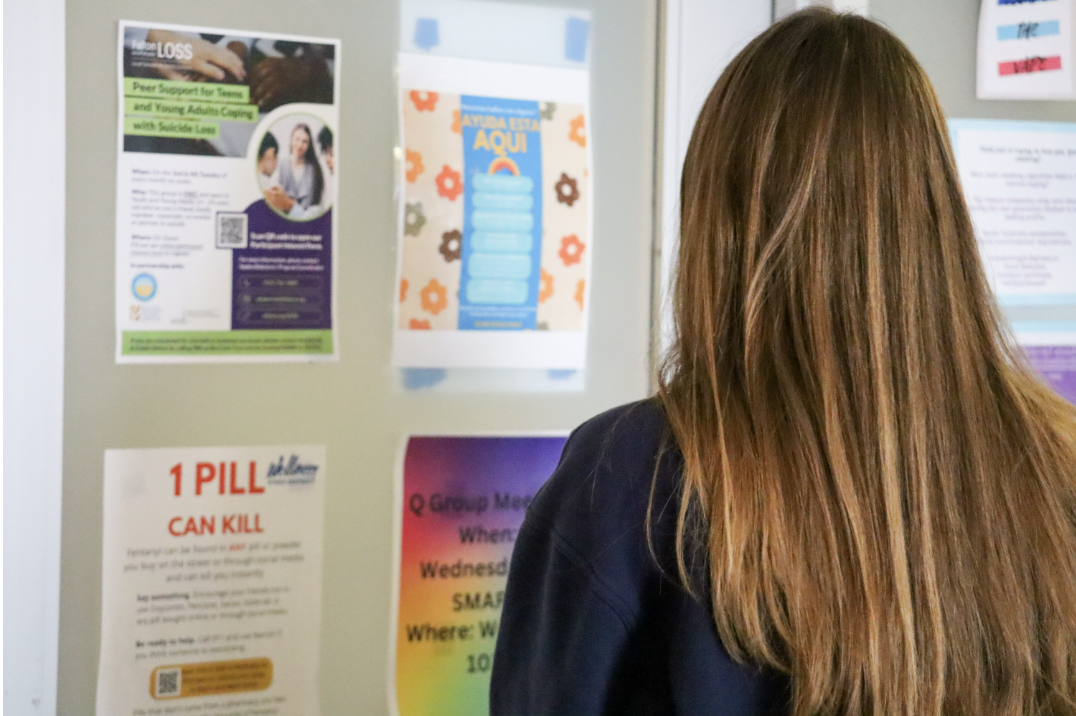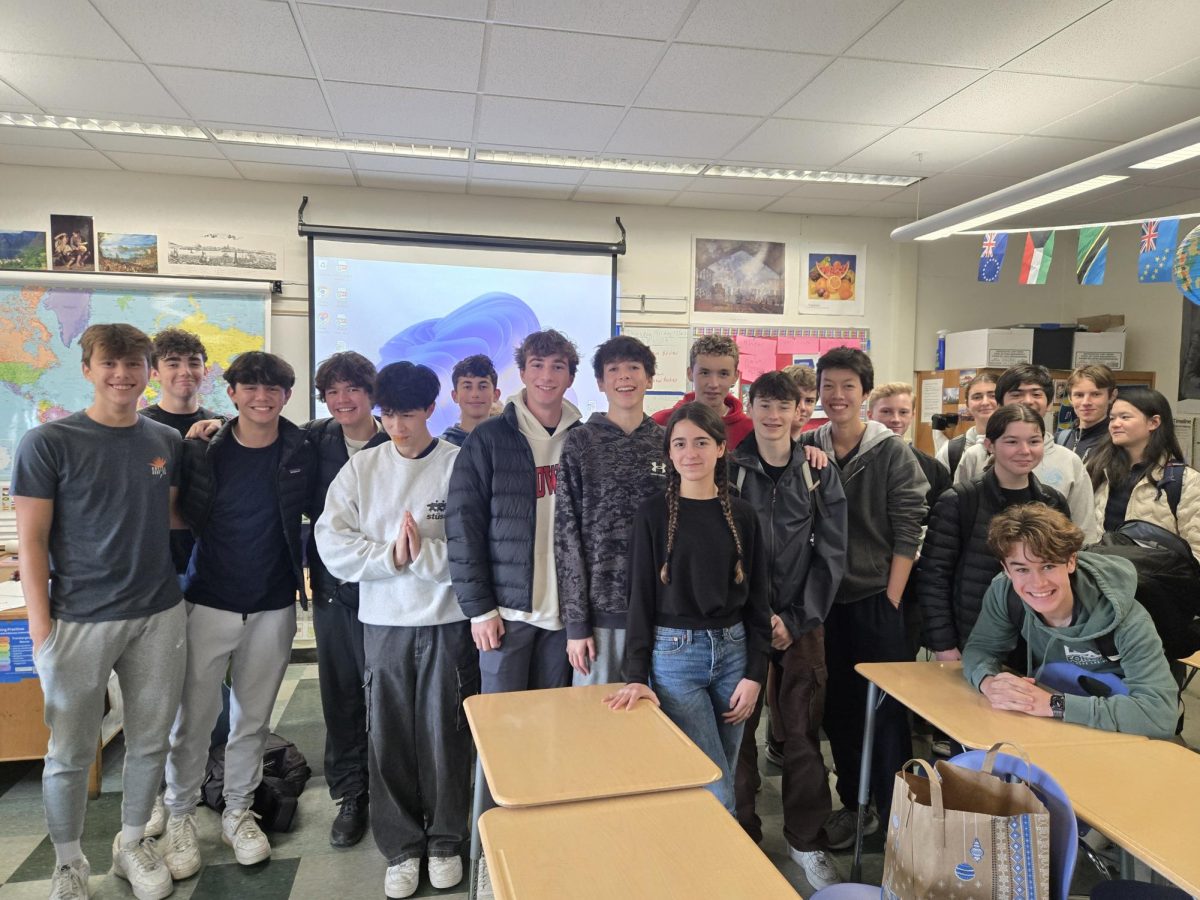Redwood parent helps inmates receive an education, brightens futures
February 27, 2019
As the wind washes over him while he disembarks the ferry in Larkspur every Tuesday, Redwood parent Rich Donick mounts his bike after a long day of work, not to return home to the comfort of his couch, but instead to the concrete confines of San Quentin State Prison. The purpose of his weekly visits at San Quentin is to prepare inmates for a General Education Development (GED) degree.
Rich started volunteering with inmates at San Quentin a year and a half ago after being introduced to the program by a fellow Redwood parent.
“I’ve been living in Marin for 15 years and I always drive by San Quentin and see it. And I know that there are all these men incarcerated in there, and even though they’re there, they’re so separate from my life [in Marin]. So I decided to sign up and was allowed to teach after a background check,” Rich said.
After being accepted to volunteer in the prison, Rich decided to teach the prerequisite GED math for the Academic Peer Education Program (A.P.E.P.).
A.P.E.P. is a program that started 11 years ago at San Quentin, founded with the goal of providing inmates with the opportunity to receive their G.E.D while incarcerated. Once inmates receive their GED, they can enroll in the Prison University Project, a nonprofit that gives inmates the opportunity to receive their associate’s degree.
“Teaching math is unique because it covers a wide variety of topics. I’m teaching everything from simple fractions to Algebra to Geometry, to basically everything up to junior high school math,” Rich said.
Once inmates are released with an associate’s degree, they can then continue their education by attending a university with hopes that their degree will help them find a career. However, assimilating into society post-incarceration is not easy to achieve, according to Tim Thompson, an A.P.E.P. graduate who had been incarcerated for 23 years before being released in 2018.

“When I went in, there was no internet, now the internet is a big thing. I had a little experience with it in prison, but it’s definitely taken some getting used to,” Thompson said.
Fortunately, when Thompson was released, Rich was there to mentor him and help him adjust to life on the outside.
“Rich is a great guy, he has been there for me a lot since I got released. We frequently hang out and go and grab some food or go shopping. It’s been great to have someone in this area because none of my family lives here,” Thompson said.
For Rich, teaching inmates has been an eye-opening experience, changing the way he sees his “neighbors” at San Quentin.
“In general these people in there [have] at some point in their lives made some serious mistakes to put them in the position they’re in. For many, they committed these crimes when they were much younger. In a lot of ways, these inmates are very different people than they were when they went in,” Rich said.
Not only has he gained valuable insight from this experience, but he has also reflected on the value of giving back to his community in an unconventional manner.
“It’s just generally satisfying to see that you’re helping people and you can see these guys actually learning with you and see that they enjoy being able to learn and that is meaningful to them. That’s pretty gratifying,” Rich said.
Rich’s daughter, senior Katie Donick, has seen first-hand how much working with the inmates has impacted her dad.
“My dad talks about his experience at San Quentin all the time; I think it’s so cool what he’s doing. He constantly talks about hanging out with Tim. He thinks [Tim] is the coolest guy,” Katie said.

Rich hopes to continue working in San Quentin for as long as he can and wishes that many of the men he is working with will be granted a new beginning in society again.
“Our whole society is based on giving people a second chance and it’s nice to be able to go in and help them. You genuinely do feel like you’re helping them when you’re teaching them and they seem to really both enjoy it and appreciate it,” Rich said.







